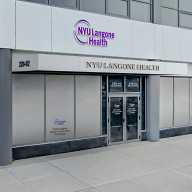A bill introduced in the State Senate would make it more difficult for private companies to get a hold of city parkland.
“Parkland is sacred and should be preserved for generations to come, not given away to private developers, especially without just and equal parkland compensation,” said State Senator Tony Avella, who penned the legislation.
The law would allow for a review process of proposals to change parkland use. It would also require replacement green space to be three times the size of the parcel being alienated and within one mile of that parcel.
Three separate proposals around Flushing Meadows-Corona Park are at the root of bill’s target. Developers want to expand the US Tennis Association (USTA) stadium, transform Willets Point and build a Major League Soccer stadium there.
“[These projects] threaten to take crucial parkland from Flushing Meadows-Corona Park and together constitute perhaps the biggest land grab for parkland not only in Queens, but also in the entire city,” Avella said.
The USTA wants to lease 0.68 acres of city property to expand the Billie Jean King National Tennis Center. That would allow them to shift the grandstand stadium and the southern tennis courts.
In exchange, the association agreed to give the city back 1.56 acres it currently leases, though project opponents say a parcel of that land is already publicly accessible.
The state legislature gave its end-of-session approval last month, passing a bill required when municipal parkland is sold or leased to a private entity.
But Avella said the mandated bill is just a legal precedent based on previous court decisions. He added that it only recommends — and does not require — that parkland be replaced.
Park advocates who support the bill say open space is a nonrenewable resource meant for the public and loopholes need to be closed.
“We would like to see park alienation made even more difficult,” said Frederick Kress, founder of Queens Coalition for Parks and Green Spaces. “It needs to be really toughened up.”
Alfredo Centola, founder of Save Flushing Meadows-Corona Park, a group opposed to private development in the park, said the law is “a good idea because it’s going to actually make it extremely difficult for the land to be stolen.”
The Senate’s Cultural Affairs, Tourism, Parks and Recreation Committee will have to decide whether to move the legislation forward to the full Senate after the summer recess is over.
“Unfortunately, once lost, municipal parkland is difficult, if not impossible, to recover,” Avella said.
RECOMMENDED STORIES





























